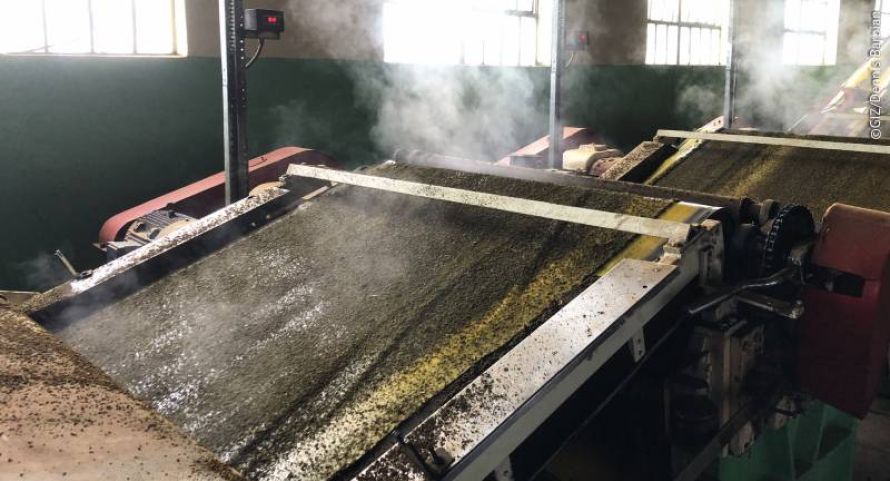Showcase project for more sustainable Tea Production in Uganda

With the help of renewable energy, tea factories can reduce their energy costs, produce more economically and reduce deforestation.
More than one million Ugandans make their living from tea cultivation or work in one of the more than 25 tea factories in the country. Tea is the African country’s second most important agricultural export. However, the sector faces major challenges. On the one hand, exporters are currently only getting low prices, while at the same time energy costs are rising, threatening the competitiveness of the companies.
Tea factories need a lot of energy to dry and process tea leaves. They use electricity to drive fans and other machines, and firewood to generate steam. For their enormous demand for wood, they deforest entire regions in southwestern Uganda.
It therefore makes sense, both ecologically and economically, to modernise the energy supply with the help of decentralised renewable energies, to increase energy efficiency and thereby significantly reduce energy costs and protect nature and the climate.
To advance these goals, GBE Uganda has agreed on an integrated development partnership (iDPP) with the German-Ugandan company EquatorSolar and the German company Renergy. The aim of the cooperation is to develop individual and efficient energy solutions for five tea factories based on renewable energies. The project is intended to serve as a showcase for industry, project developers and investors in order to sensitise more tea factories and other manufacturing industries in rural areas to sustainable energy use in the future.
Specifically, the partners will map the current energy consumption in the five tea factories, analyse the technologies used and identify renewable alternatives. Furthermore, the project wants to prove the economic feasibility in order to increase the acceptance for renewable energies and to expand the range of renewable energy solutions. The knowledge gained should allow the responsible Ministry of Energy and Mineral Development to initiate favourable framework conditions for renewable energies. All these steps can significantly reduce CO2 emissions and clear-cutting of forests.





